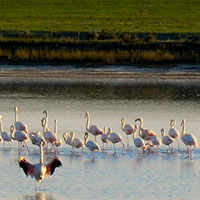Overberg commits to conservation
The Overberg District Municipality and Cape Agulhas Municipality have committed the municipalities to protect the region’s biodiversity. Both municipalities signed the Durban Commitment on Tuesday, 9 May, at a wetlands awareness day.
The Durban Commitment encourages local government to take responsibility for the wellbeing of communities by protecting and managing biodiversity. Municipalities also committed to recognise the role of nature as the “foundation of our existence”.
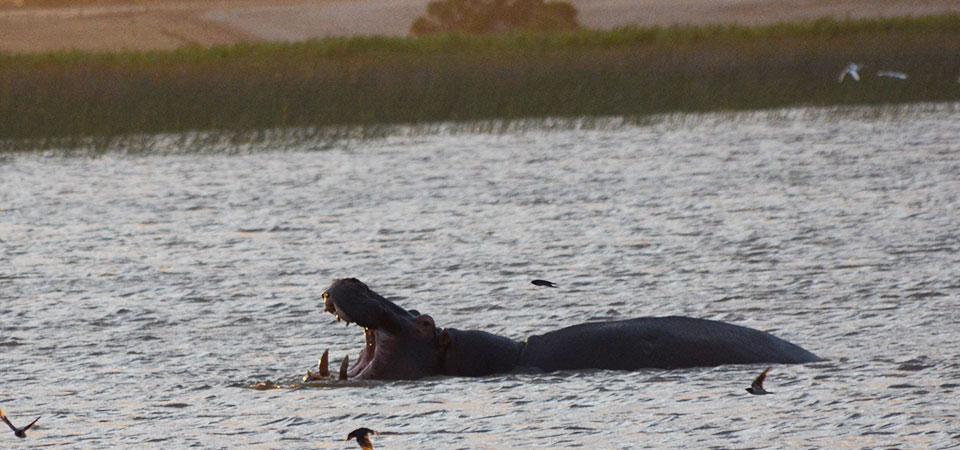
Hippo sighting at the Waagvlei
Photograph by the Nuwejaars Wetlands SMA.
Protecting our ecosystems
According to ODM Mayor, Andries Franken, “The ODM re-emphasises our commitment to protect the natural resources we’ve got here, and to sustainable development.” He said this signing provides impetus to the Council to “ensure these valuable ecosystems are protected”.
The ODM and CAM councilors also visited the wetlands in the Nuwejaars Wetlands Special Management Area, as part of a campaign to raise awareness of the importance of wetlands.
How we can care for our wetlands
The day was organised by the ODM and ICLEI (Local Government for Sustainability). An ICLEI team has just completed a report on the importance of the Overberg’s wetlands, and what actions should be taken to protect them.
According to CAM Mayor Paul Swart, “It was an eye-opener to see the importance of wetlands. We don’t really understand every day the importance of conserving wetlands in our area.”
The report noted that 50{b457789cda042d29fe4cc7e5d35bf4ddd2794d1b348df1b79c04ba5fe338611a} of wetlands in South Africa have already been lost and 48{b457789cda042d29fe4cc7e5d35bf4ddd2794d1b348df1b79c04ba5fe338611a} of the remaining wetlands are critically endangered and/or degraded.
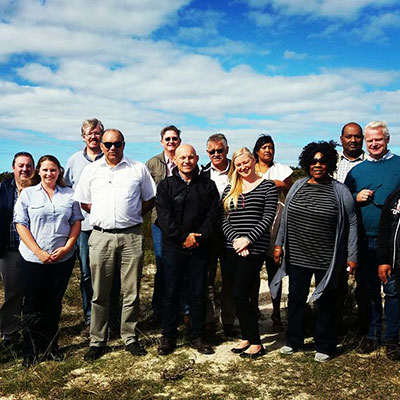
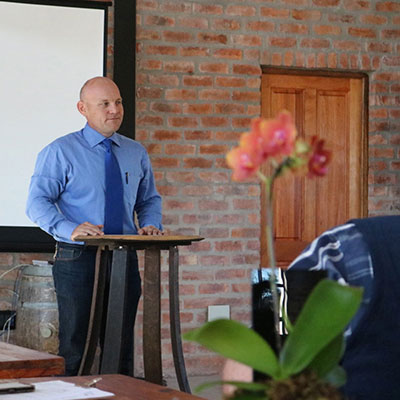
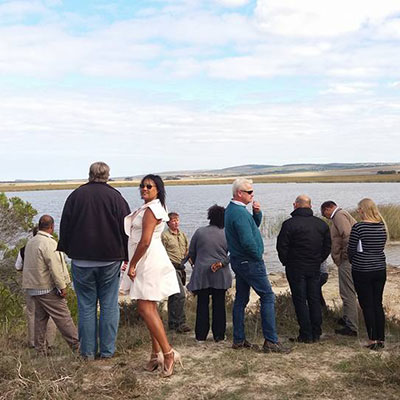
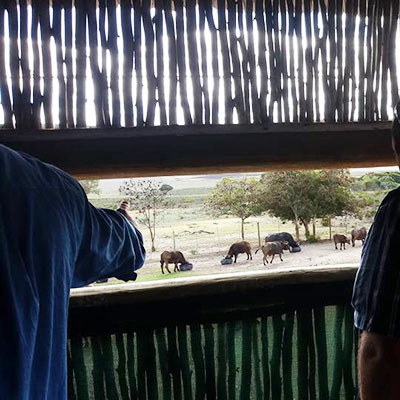
The threats to wetlands
It found that urban development, poor agricultural practices, invasive plants and invasive fish are the major threats to the Overberg’s wetlands.
According to Dirk Human, Chair of the Nuwejaars Wetlands Special Management Area (SMA), “In the SMA, agriculture can’t exist without conservation. In 2003 when we started, we realised we’re sitting in an area important in a global context. We identified that we can’t protect this alone. We have to do it with our partners, like local authorities.”
Want new articles before they get published?
Subscribe to our Awesome Newsletter.

